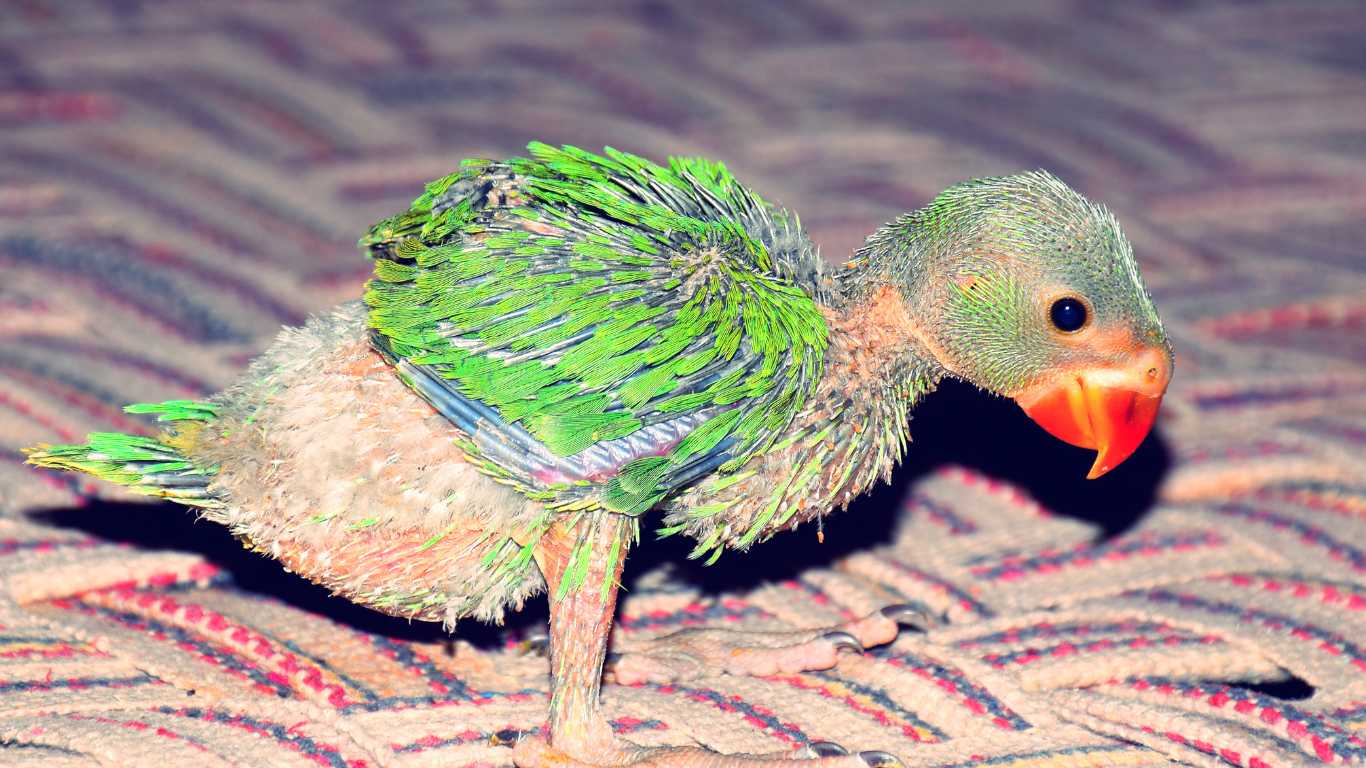Because of their colorful plumage and endearing personality, ringneck parrots are wonderful friends to have. However, just like any other pet, they are susceptible to experiencing health problems, and one alarming issue is the vomiting of infant parrots. It is essential for responsible parrot ownership to have a solid understanding of the factors that contribute to this behavior.
Normal Behavior vs Vomiting:
Before diving into the causes, distinguishing between normal behavior and alarming signs is essential. Healthy baby parrots exhibit certain behaviors; recognizing them is the first step in ensuring their well-being.
Reasons Behind Ringneck Parrot Baby Vomiting:
Dietary Issues:
Proper nutrition is paramount for parrot health. Inappropriate or poor-quality food can lead to vomiting. Overfeeding or underfeeding can also disrupt their delicate digestive systems.
Health Conditions:
Infections and diseases, such as bacterial or viral infections, can contribute to vomiting. If left untreated, parasitic infestations may lead to severe health issues in baby ringneck parrots.
Environmental Stress:
A parrot’s environment significantly impacts its health. Unfavorable living conditions or sudden changes in surroundings can induce stress, manifesting as vomiting.
Handling and Feeding Practices:
Improper handling or feeding techniques may stress the parrot, leading to vomiting. Gentle care and proper feeding are essential for their well-being.
Identifying Vomiting in Ringneck Parrot Babies:
Observing symptoms like regurgitation, lethargy, or changes in droppings is crucial. Seeking prompt veterinary assistance ensures early detection and intervention.
Prevention Tips:
Nutrition Guidelines:
Balanced diets with a mix of seeds, fruits, and vegetables are crucial. All the time, they should have access to clean water so that they may stay hydrated.
Hygiene Practices:
Regularly cleaning the living space prevents bacterial growth. Routine veterinary check-ups help detect potential issues early on.
Stress Reduction:
Creating a stress-free environment through consistent routines and gentle handling minimizes the risk of vomiting.
Treatment Options:
Veterinary-prescribed medications and adjustments to the diet based on professional advice are common treatments for vomiting in baby parrots.
Common Myths and Misconceptions:
Dispelling myths about parrot health is essential. Common misconceptions can lead to inappropriate care and unnecessary worry for parrot owners.
Importance of Timely Intervention:
A parrot’s recovery is strongly impacted by early discovery and treatment of the condition. Delayed action may worsen the condition and compromise the bird’s overall health.
Personal Experiences:
Learning from other parrot owners’ experiences can provide valuable insights. Experienced owners share anecdotes and advice on dealing with baby parrot vomiting.
Conclusion:
Understanding the reasons behind ringneck parrot baby vomiting is crucial for adequate care. Responsible pet ownership involves a combination of proper nutrition, hygiene, and prompt veterinary attention.
FAQs:
How often should I take my baby parrot to the vet?
Regular veterinary check-ups are recommended, ideally every six months, to ensure early detection of potential health issues.
What are the signs of a healthy parrot?
A healthy parrot exhibits vibrant plumage, active behavior, regular eating habits, and clear, well-formed droppings.
Can stress really affect my parrot’s health?
Yes, stress can impact a parrot’s health, leading to various issues, including vomiting. For the sake of their health, it is essential to establish an atmosphere that is free of stress.
Does my parrot have any particular foods that I should steer clear of giving it?
Certain foods like chocolate, caffeine, and avocado are toxic to parrots. Consult with a vet for a suitable diet.
How can I make sure my bird doesn’t feel stressed?
Maintain a consistent routine, provide a comfortable living space, and handle your parrot gently to minimize stress.
